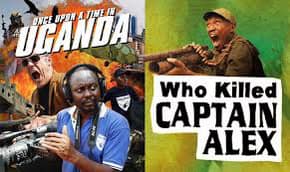By Denis Jjuuko
About 30 years ago, a Ugandan soap opera captured the imagination of the nation, turning hitherto unknown actors and actresses into household names. Some like Sam Bagenda who was quoted over the weekend, the public doesn’t even know their real names. Where he turns, he is known as Dr Bbosa after the character he portrayed so well in the famous series, That’s Life Mwattu.
Other series followed such as Bibaawo and Ekitobeero trying to capture the market created by the success of That’s Life Mwattu. Actors took to the stage and it seemed a new industry was born. But it seemed the success of Ugandan TV shows were always short lived.
Foreign soaps such as Sunset Beach, Generations, and Isidingo would always interrupt the flow, leaving Ugandan actors to only perform in poorly attended theatres. South American telenovelas and even Philippine ones have of recent been the rage.
But it seems there is a revival of the Ugandan TV soaps. You have probably heard the kids in the neighborhood singing Sanyu Sanyu nkwagala, a theme song for the Sanyu series on one of the pay TV channels. Or you have been incessantly called to remind you that the “TV has been cut off yet Sanyu Sanyu Nkwagala is about to start, please pay up.”
Sanyu revolves around a young fashion designer who marries into the extremely rich Kirunda family that runs the country’s biggest fashion enterprise. Kirunda, a cunning businessman or criminal depending on how you look at things is played by Abbey Mukiibi of the Kalisoliiso Crew. It is a well-crafted script and the production is good.
It isn’t only Sanyu that is keeping soap lovers captivated. There is also Ssuubi, a domestic worker working for the family of coffee mogul Kaaya. Kaaya is played by renown actor Andrew Benon Kibuuka of the Bakayimbira fame. It also features visual artist and former Buganda Kingdom minister Owek Nuwa Wamala Nnyanzi. And of course, Comedy Factory and its Mzigo Express. The production of Ssuubi or Mzigo Express is as good as Sanyu even though sometimes the casting could have been better.
There are several other Ugandan TV series and lovers can be hooked on TV the entire weekday evening. Of course, there are also some poorly done ones I have watched but there is no need to dwell on them.
Even though these series are featuring many known faces, there are many actors and actresses I am seeing for the very first time and they are good at what they are doing. Many are young and smart and the future for the industry seems to be bright.
Like I have argued before, the creative industry can employ millions of young people. There are 71 licensed TV stations in the country and hundreds of radio stations, most of which lack content. Audio dramas targeting mobile phone users could also be made. And of course, the internet opens many opportunities.
Many young people already earn a living creating content on YouTube and TikTok. X, formerly Twitter, recently started paying verified users (may not be yet possible in Uganda though). However, some of the creators on platforms like TikTok produce bizarre videos in a bid to bait followers to watch them. Many such creators lack the skills and talent to write creative scripts and of course acting them out. I don’t think they will stay in the industry for long.
So, there is a need to train more script writers and production crews if this is to work and most importantly create distribution channels and systems so the content can reach the target market.
The training doesn’t necessarily have to be through formal education where people get degrees and such certificates. Hands on training would create the numbers necessary today to get these young people quickly into work.
The emphasize must be on original content and not necessarily on recycling or even copying jokes like some standup comedians do. It also doesn’t have to be vulgar or tribal to sell either. What channels through which would this content be distributed? What synergies can be made?
In Nollywood, Nigeria’s highflying film industry, it is estimated that each movie employs approximately 100 people from pre-production to movie production to post production. Nearly 3,000 movies are produced annually in Nollywood, which translates into approximately 300,000 jobs a year. Generally, a million people work in Nollywood. According to Business Day, a Nigerian newspaper, Nollywood contributes 2.3% of the country’s GDP. Nigeria is Africa’s biggest economy.
Africa’s film and entertainment industry has the potential to create 20 million jobs and US$20 billion annually by 2025 according to UNESCO.
This won’t happen on its own. Deliberate efforts will be needed for the industry to thrive. If you are looking for where to invest, what about the movie industry and its value chain?
The writer is a communication and visibility consultant. djjuuko@gmail.com










